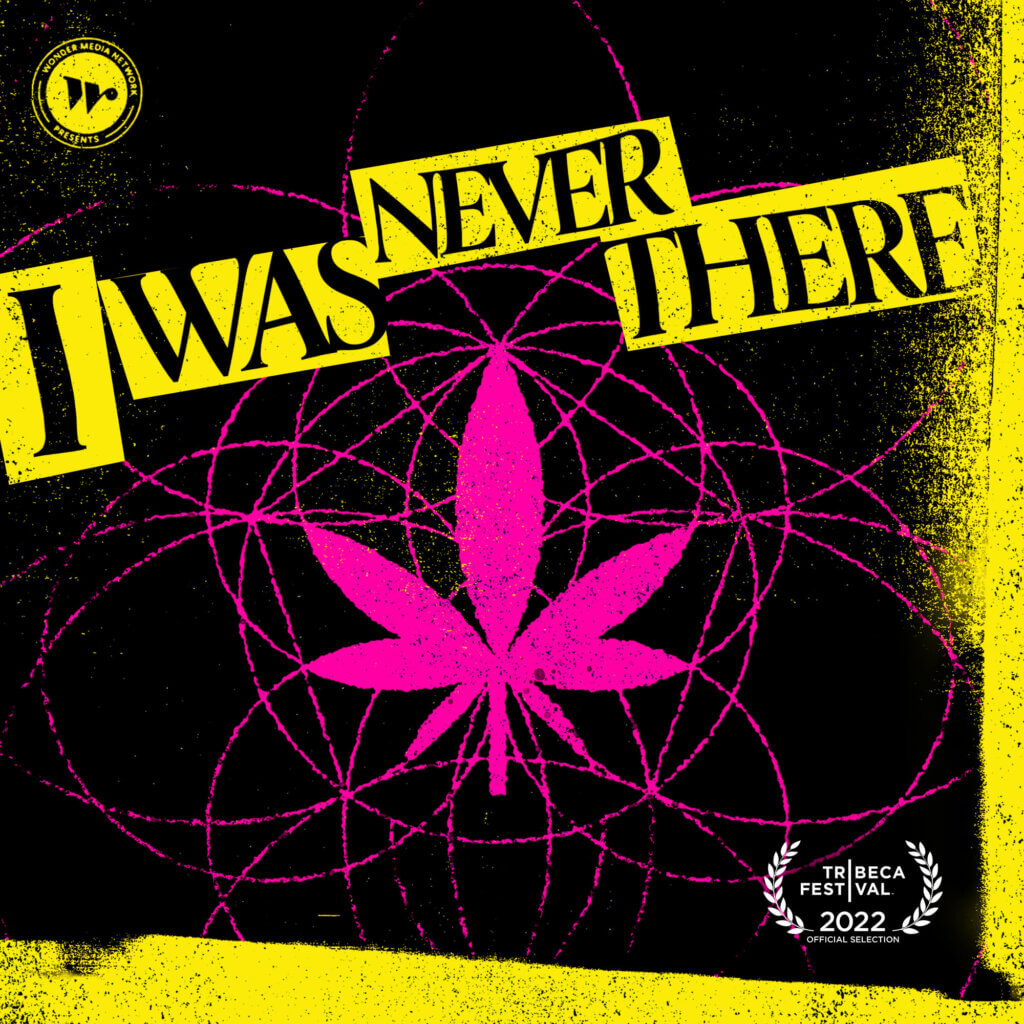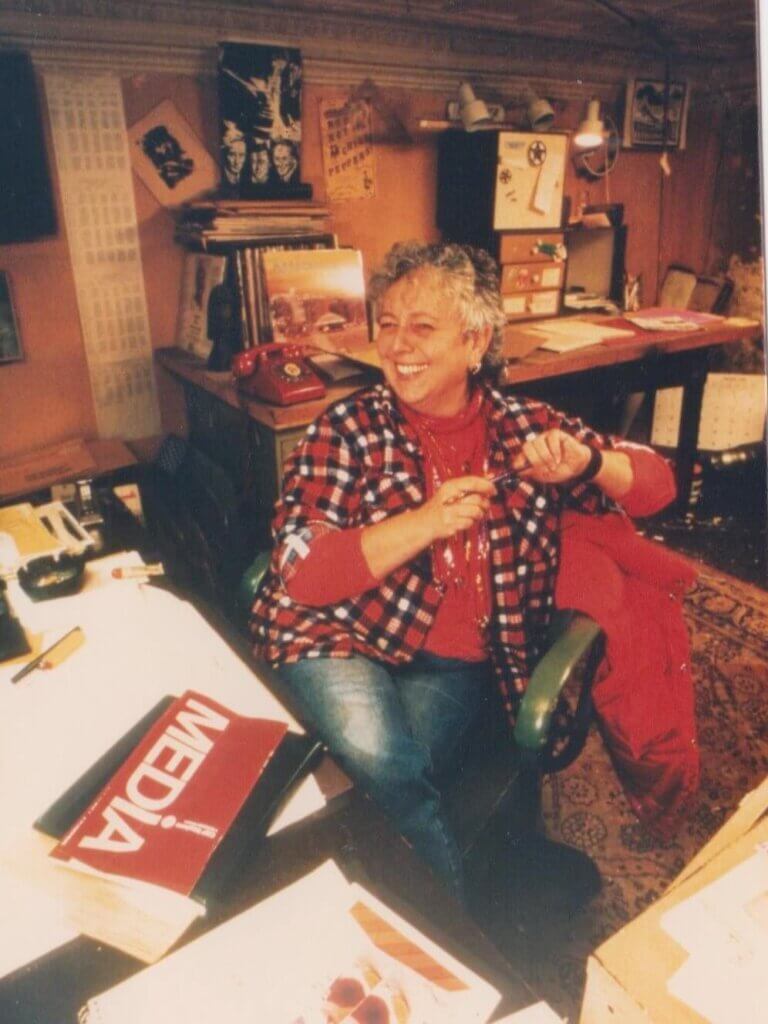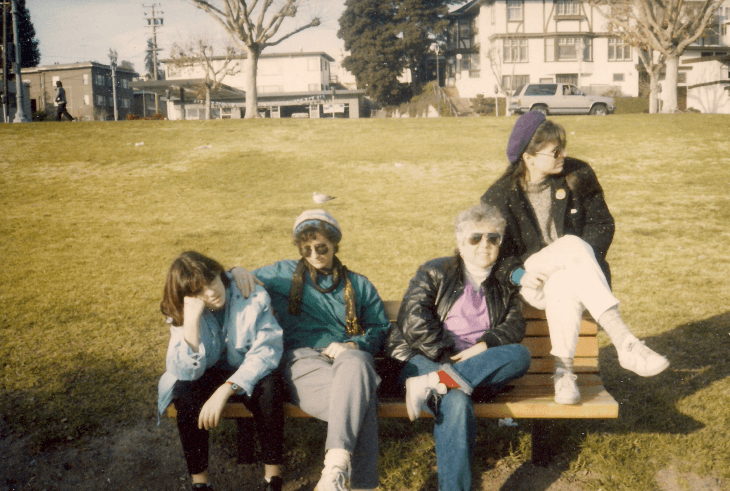Dark details about the Morgantown nightclub owner’s disappearance surface in the new podcast I Was Never There.

If you’re connected in some way with Morgantown, you may know the broad outline of the story of Marsha Ferber. Maybe you’ve heard local lore or read about it in Morgantown magazine. Or maybe you actually knew her. Now a podcast from two women who knew her well fills in the “sketchy” parts of that outline—in more senses than one.
“Time has given people space to feel OK to tell their stories,” says Jamie Zelermyer, who, with her mother, Karen Zelermyer, created I Was Never There.

Here’s what you may know: Ferber moved from New Jersey with her family and another couple to start the Mudd Farm commune in Calhoun County, West Virginia, in the early 1970s. She moved to Morgantown in the later ’70s—she’s well-remembered here for founding two communal Earth Houses and helping to create the beloved Mountain People’s Co-op. Ferber also started the storied Underground Railroad nightclub and the Dry House all-ages club next door. She mothered outcasts and wandering souls, booked an eclectic mix of emerging and top-notch performers, and generally stirred the pot in an exciting way.
Then one day in April 1988, she vanished. It’s an open police matter to this day, and it has left a ragged, unhealing wound: As many as 500 people participated in a 25th anniversary reunion weekend in 2013.
Karen Zelermyer also moved to Morgantown from a commune, one that she, like Ferber, had started with friends in central West Virginia, and the two women met in 1978. “We were soul sisters,” Zelermyer says. She and her daughters, Jamie and Sarah, lived in Earth House One, and she tended bar for Ferber, who was a mother figure to the girls. The Zelermyers moved to New York City after a few years, and Ferber visited often. Their lives were intertwined for a decade.
So when Jamie Zelermyer, now a film and television storyteller, suggested to her mother in 2019 that they research Ferber’s life and disappearance for a podcast, her mother agreed. Over two years, the Zelermyers tracked down people from all phases of Ferber’s life. They reconnected with old friends and learned painful hidden truths. Ferber dealt marijuana openly, but friends suspected she was either murdered or went into witness protection over darker dealings—darker dealings that can now be told. “There was always a sense that Marsha was increasingly out of control,” Karen Zelermyer says, “but we did not quite know the extent of it.”
Ferber was and is a folk hero to many in Morgantown, “especially for the Dry Housers, those kids who felt like they had a safe space to go to,” Jamie Zelermyer says. “But folk heroes are complicated. Humans are complicated.” Through their research, mother and daughter came to see Ferber’s life as a house of many rooms—the hippie co-op room, the music room, the marijuana room, the cocaine room, and others, some possibly still to be unlocked—with restricted access for even her closest friends. Their podcast opens doors for listeners.
Produced by Wonder Media Network, episodes of I Was Never There drop for eight Thursdays starting June 9, and they’re free to listen to on your favorite podcasting service.
This is an updated version of the story that appeared in the Summer 2022 print edition of WV Living
READ MORE ARTICLES FROM WV LIVING’S SUMMER 2022 ISSUE













I was one of the few that made that trip from West Orange to West Virginia